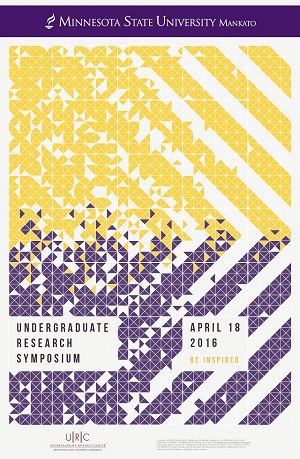Comparison of Cognitive Abilities with Left Versus Right Hemisphere Brain Damage
Location
CSU Ballroom
Start Date
18-4-2016 2:00 PM
End Date
18-4-2016 3:30 PM
Student's Major
Speech, Hearing, and Rehabilitation Services
Student's College
Allied Health and Nursing
Mentor's Name
H. Sheen Chiou
Mentor's Department
Speech, Hearing, and Rehabilitation Services
Mentor's College
Allied Health and Nursing
Description
The left and right hemispheres of the brain carry out different functions, both of which are important for speech, language, and communication. The left side of the brain handles tasks involving logic, sequencing, analysis, and language. The right side of the brain handles nonlinguistic roles such as creativity, imagination, and artistic skills. Damage to either side of the brain can leave a person with major deficits, but the type of difficulties a person might have can be determined by the location of the damage. Brain damage can also affect cognitive flexibility ability, which make it difficult for someone to flexibly switch to a different response when the current conditions change. This switching ability can be assessed by using tasks involving a shift in a certain category such as shape, color, or numbers and letters (Rende, 2000). Six research participants with left hemisphere brain damage and two research participants with right hemisphere brain damage participated in the study. The study investigated their performance on language-based versus nonlinguistic-based cognitive tasks involving switching abilities. Data analyses were conducted by examining data patterns between the two groups using visual graphs. The results showed that when comparing with individuals with right hemisphere damage, individuals with left hemisphere damage had an easier time with nonlinguistic-based switching tasks. Individuals with left hemisphere damage appeared to take advantage of their intact right hemisphere to process nonlinguistic tasks; however, their damaged left-hemisphere was not able to support their language-based performance. Language-based switching tasks were difficult for both groups.
Comparison of Cognitive Abilities with Left Versus Right Hemisphere Brain Damage
CSU Ballroom
The left and right hemispheres of the brain carry out different functions, both of which are important for speech, language, and communication. The left side of the brain handles tasks involving logic, sequencing, analysis, and language. The right side of the brain handles nonlinguistic roles such as creativity, imagination, and artistic skills. Damage to either side of the brain can leave a person with major deficits, but the type of difficulties a person might have can be determined by the location of the damage. Brain damage can also affect cognitive flexibility ability, which make it difficult for someone to flexibly switch to a different response when the current conditions change. This switching ability can be assessed by using tasks involving a shift in a certain category such as shape, color, or numbers and letters (Rende, 2000). Six research participants with left hemisphere brain damage and two research participants with right hemisphere brain damage participated in the study. The study investigated their performance on language-based versus nonlinguistic-based cognitive tasks involving switching abilities. Data analyses were conducted by examining data patterns between the two groups using visual graphs. The results showed that when comparing with individuals with right hemisphere damage, individuals with left hemisphere damage had an easier time with nonlinguistic-based switching tasks. Individuals with left hemisphere damage appeared to take advantage of their intact right hemisphere to process nonlinguistic tasks; however, their damaged left-hemisphere was not able to support their language-based performance. Language-based switching tasks were difficult for both groups.
Recommended Citation
Hoerdt, Michele. "Comparison of Cognitive Abilities with Left Versus Right Hemisphere Brain Damage." Undergraduate Research Symposium, Mankato, MN, April 18, 2016.
https://cornerstone.lib.mnsu.edu/urs/2016/poster-session-B/3




